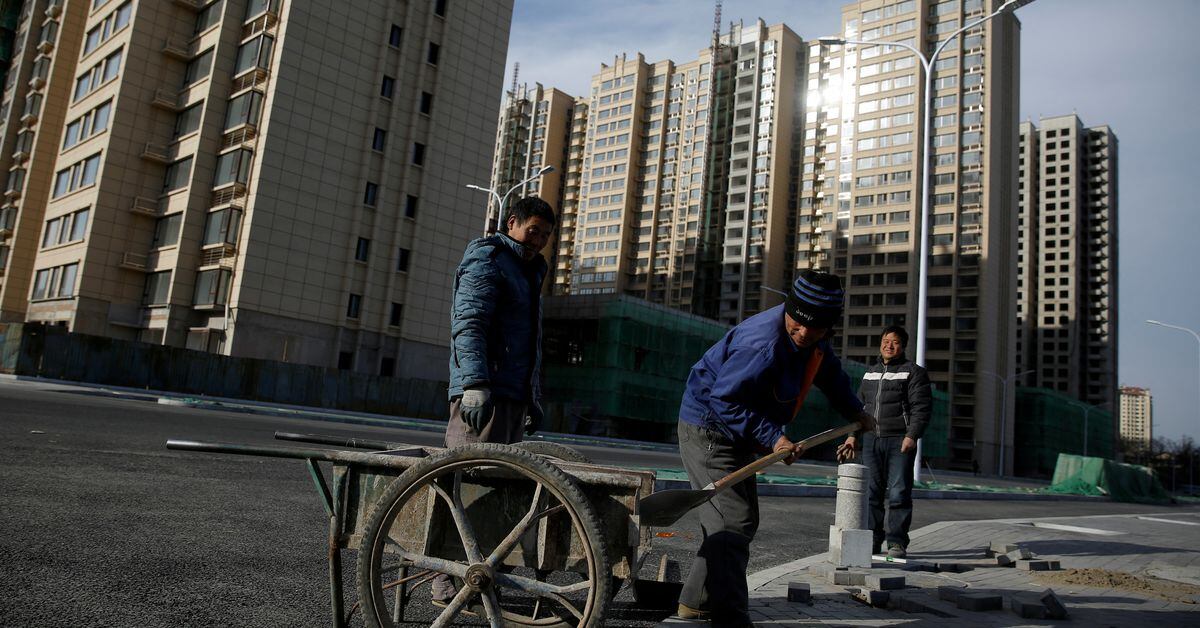NG Missile Vessels
FULL MEMBER

- Joined
- Apr 9, 2023
- Messages
- 1,600
- Reaction score
- 0
- Country
- Location
Rating agency Fitch on Thursday lowered China's 2023 GDP growth forecast to 4.8 per cent from 5.6 per cent earlier. The agency attributed the cut to the fading effect of removal of Covid-19 restrictions.
The agency affirmed China's long-term foreign currency issuer default ratings at 'A+' with a stable outlook, supported by the country's strong external finances.
Earlier today, an official data showed that China's factory activity contracted for a fifth straight month in August, as pressure mounts on Beijing to offer more policy support to bolster its sluggish economy
The reading is the latest to indicate the nation's post-Covid recovery is running off the tracks owing to a decline in overseas demand as well as a drop-off in consumption at home.
In June, S&P Global had cut its forecast for economic growth in China this year, underscoring the uneven nature of the country's post-reopening recovery that is spurring more calls for further stimulus.
S&P said it expects China to log GDP growth of 5.2 per cent in 2023, down from an earlier estimate of 5.5 per cent. It was the first such cut by a global credit ratings agency in 2023 and followed lowered predictions by Goldman Sachs and other major investment banks.
"China's key downside growth risk is that its recovery loses more steam amid weak confidence among consumers and in the housing market," S&P had said in a statement.
The world's second-largest economy had slowed in recent months after coming back to life with the lifting of three years of restrictive zero-Covid policies. In May, property investment slumped further, industrial output and retail sales growth missed forecasts, and youth unemployment hit a record 20.8 per cent.
Forecasts for China GDP growth this year range between 4.4 per cent and 6.2 per cent.
S&P had also stated that likely measures to bolster the economy could include "easing housing purchasing restrictions and mortgage down-payment requirements, expanding credit and infrastructure financing and, perhaps, fiscal support for consumption."
Four major Western banks including UBS, Standard Chartered, Bank of America (BoA) and JPMorgan had also cut their 2023 GDP growth forecasts for China. They expect China's GDP growth to be between 5.2 per cent and 5.7 per cent this year, down from an earlier range of 5.7 per cent to 6.3 per cent.
The June data showed China's economy stumbled in May with industrial output and retail sales growth missing forecasts, adding to expectations that Beijing will need to do more to shore up a shaky post-pandemic recovery.
The government has set a modest GDP growth target of around 5 per cent for this year after badly missing its 2022 goal.
The agency affirmed China's long-term foreign currency issuer default ratings at 'A+' with a stable outlook, supported by the country's strong external finances.
Earlier today, an official data showed that China's factory activity contracted for a fifth straight month in August, as pressure mounts on Beijing to offer more policy support to bolster its sluggish economy
The reading is the latest to indicate the nation's post-Covid recovery is running off the tracks owing to a decline in overseas demand as well as a drop-off in consumption at home.
In June, S&P Global had cut its forecast for economic growth in China this year, underscoring the uneven nature of the country's post-reopening recovery that is spurring more calls for further stimulus.
S&P said it expects China to log GDP growth of 5.2 per cent in 2023, down from an earlier estimate of 5.5 per cent. It was the first such cut by a global credit ratings agency in 2023 and followed lowered predictions by Goldman Sachs and other major investment banks.
"China's key downside growth risk is that its recovery loses more steam amid weak confidence among consumers and in the housing market," S&P had said in a statement.
The world's second-largest economy had slowed in recent months after coming back to life with the lifting of three years of restrictive zero-Covid policies. In May, property investment slumped further, industrial output and retail sales growth missed forecasts, and youth unemployment hit a record 20.8 per cent.
Forecasts for China GDP growth this year range between 4.4 per cent and 6.2 per cent.
S&P had also stated that likely measures to bolster the economy could include "easing housing purchasing restrictions and mortgage down-payment requirements, expanding credit and infrastructure financing and, perhaps, fiscal support for consumption."
Four major Western banks including UBS, Standard Chartered, Bank of America (BoA) and JPMorgan had also cut their 2023 GDP growth forecasts for China. They expect China's GDP growth to be between 5.2 per cent and 5.7 per cent this year, down from an earlier range of 5.7 per cent to 6.3 per cent.
The June data showed China's economy stumbled in May with industrial output and retail sales growth missing forecasts, adding to expectations that Beijing will need to do more to shore up a shaky post-pandemic recovery.
The government has set a modest GDP growth target of around 5 per cent for this year after badly missing its 2022 goal.
Попередження про переадресування
www.google.com



